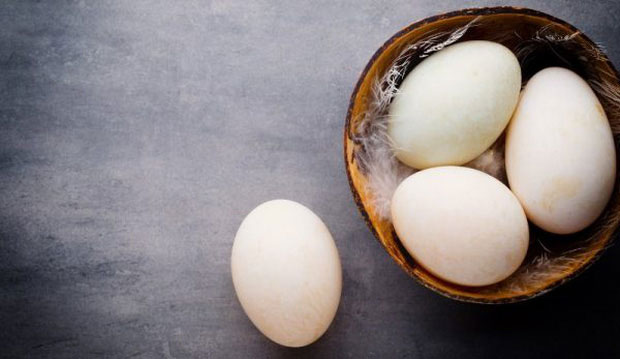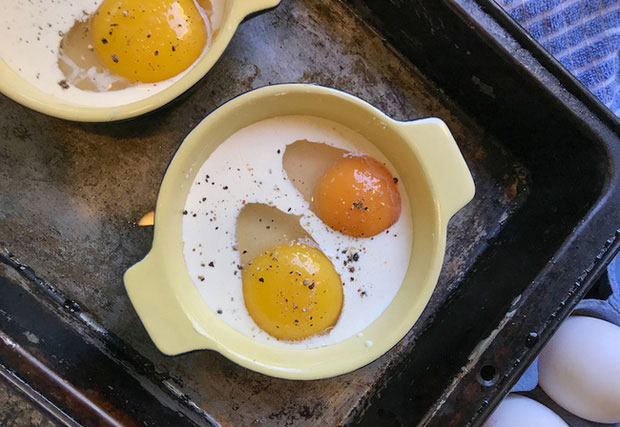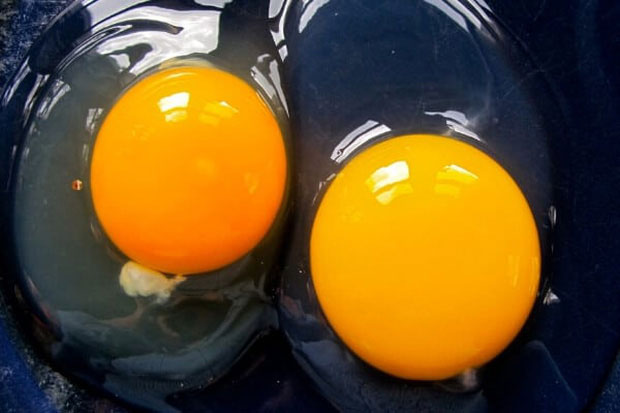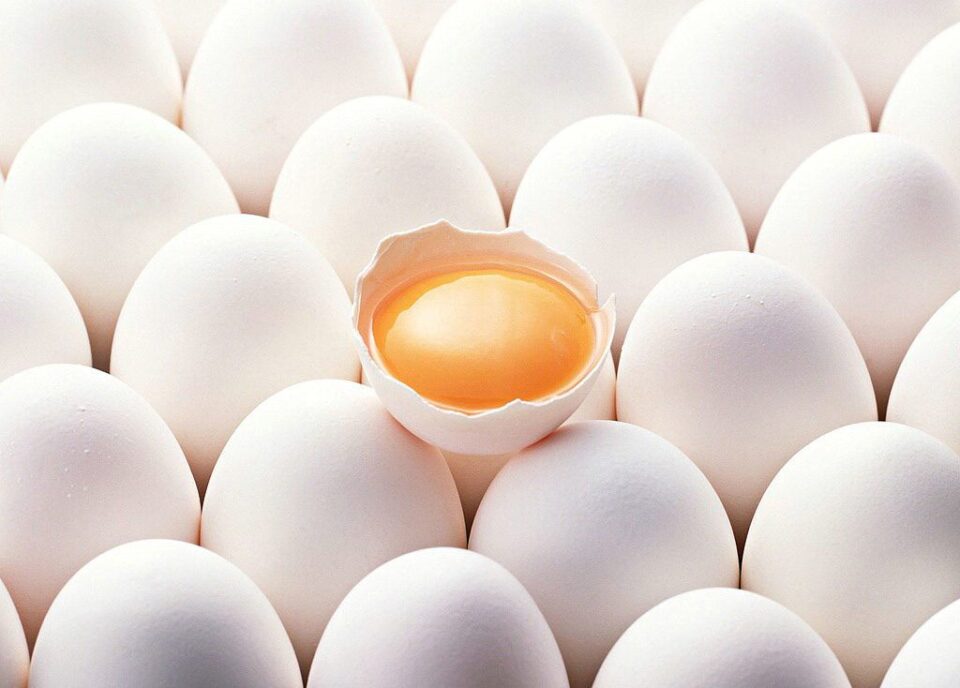Eggs are an integral part of the daily diet and are used by many food industries to produce egg products. Worldwide, the poultry meat market is mainly made up of chicken eggs. However, in recent years, duck eggs have become popular especially in Asian countries due to their superior benefits over eggs.
According to Ms. Doan Thi Tuong Vi (Former Head of Nutrition Department, Hospital 198), duck eggs are high energy eggs. 100g of eggs contain 166kcal, while duck eggs contain 184kcal. Adults expected to eat duck eggs will have plenty of energy to compensate for the energy lost during work and study. In addition, this type of egg is more important because:
 Duck eggs are high energy eggs.
Duck eggs are high energy eggs.
Duck eggs are bigger
The basic difference between a duck egg and a chicken egg is that medium sized duck eggs are up to 50% larger than eggs. Duck eggs can also be visually distinguished from eggs by the colors yellow, green, light gray, blue and black.
Has a more creamy and creamy texture
The diversity of proteins is responsible for the foaming properties of duck eggs. Ovalbumin, a protein found in duck eggs, has a higher inhibitory effect on food additives added in the food industry to improve the textural properties of eggs. This gives the duck eggs a richer and more delicious taste.
More sources of protein
Duck eggs contain five main proteins: ovalbumin (40%), ovom acid (10%), ovotransferrin (2%), ovomucin (3%) and lysozyme (1.2%) . Compared to other poultry eggs, duck eggs are high in protein. This is precisely why it is considered to be more nutritious than chicken eggs.
Richer Sources of Folate
100 g of duck eggs contain 80 µg of folate, while eggs contain 47 µg. High levels of folate or vitamin B9 in duck eggs have been linked to a reduced risk of pregnancy complications, heart disease, and cancer.
 100 g of duck eggs contain 80 µg of folate, while eggs contain 47 µg.
100 g of duck eggs contain 80 µg of folate, while eggs contain 47 µg.
Contains vitamin B12
Duck eggs contain a higher percentage of egg yolks than eggs or other poultry eggs. One study found that vitamin B12 contained more in duck egg yolks than in egg whites. Compared to egg yolks – which are smaller than duck egg yolks – of course, it can be concluded that vitamin B12 is more present in duck eggs than in eggs.
Contains many omega-3 fatty acids
Yolks are a dense source of essential fatty acids like linoleic acid. Duck eggs have a larger yolk than eggs and therefore more omega-3 fatty acids. This nutrient is good for the heart and may provide more of your daily fatty acid requirement.
 Duck eggs have a larger yolk than eggs and therefore more omega-3 fatty acids.
Duck eggs have a larger yolk than eggs and therefore more omega-3 fatty acids.
A better choice for pastry
Egg albumin is the main ingredient in baked goods such as cakes and cookies. Duck eggs have excellent foaming properties due to their high protein content. Proteins form a viscous film and have rapid absorption during the whipping process. In addition, the foam of duck eggs is more stable, and its nutrition is not affected by high temperatures (such as when cooking). This makes duck eggs suitable for cooking.
Requires less maintenance
The market demands high quality eggs with improved physical properties. Duck eggs have strong eggshells, high impact resistance, high stability, large size and a variety of shades. The sturdy duck eggshell helps prevent breakage to the maximum while the protein stability at room temperature increases shelf life. This is why duck eggs require less maintenance and are easy to handle.
 Duck eggs have excellent foaming properties due to their high protein content.
Duck eggs have excellent foaming properties due to their high protein content.
Best Alternative For People With Egg Allergies
Food allergy to eggs is a very common story. Ovomtio is the main food allergenic protein found in egg whites. If a person is allergic to ovomtio chicken eggs, duck eggs may be the best alternative or vice versa.
More stable during storage
Ovalbumin trong trứng vịt là loại protein chiếm ưu thế nhất. Theo một nghiên cứu, nhiệt độ bảo quản không có ảnh hưởng đáng kể đến kiểu protein của trứng vịt so với trứng gà trong vòng 15 ngày. Điều này cho thấy chất albumin trong trứng vịt không bị ảnh hưởng nghiêm trọng khi để ở nhiệt độ phòng bảo quản lâu.
Note
Although duck eggs have many advantages over eggs, Dr Tuong Vi stressed that dieters should not eat duck eggs because these eggs have a lot of energy. Cholesterol in eggs is still of most concern as it is linked to cardiovascular and metabolic disease. The amount of cholesterol in eggs is lower than in duck eggs, so people with dyslipidemia should not eat duck eggs but can still eat eggs.


